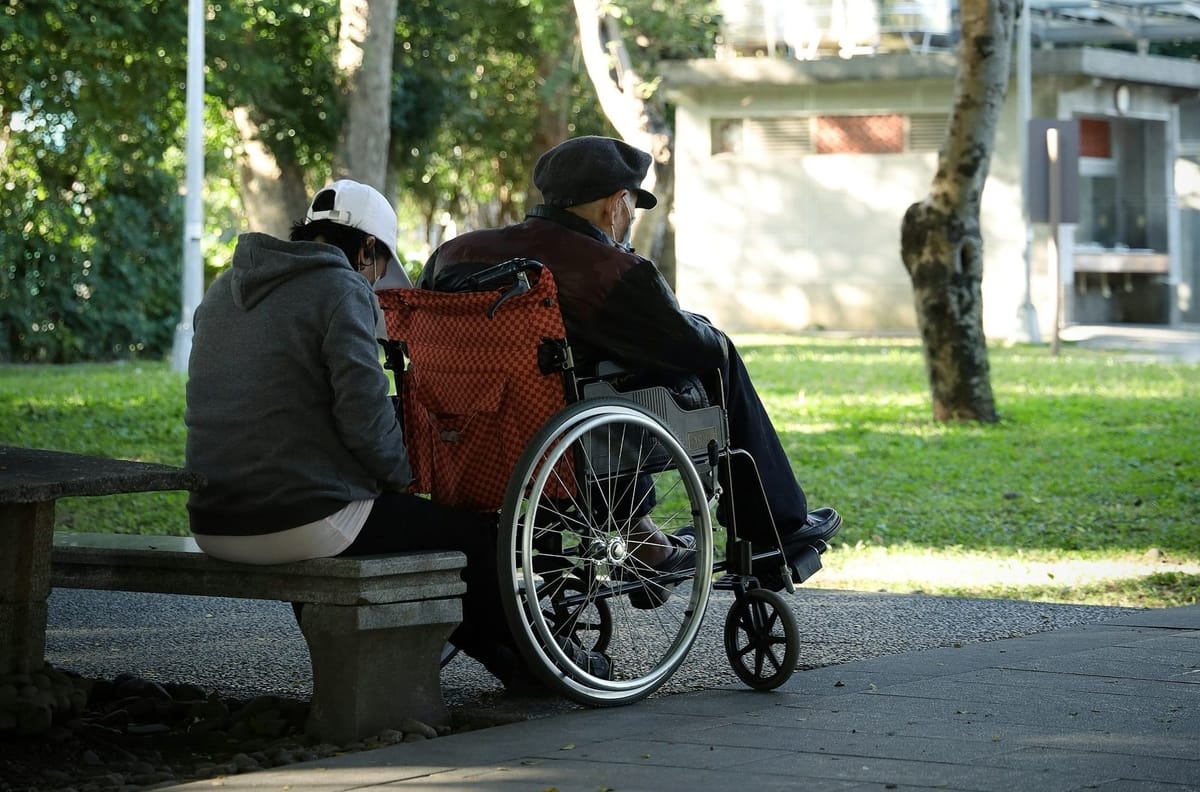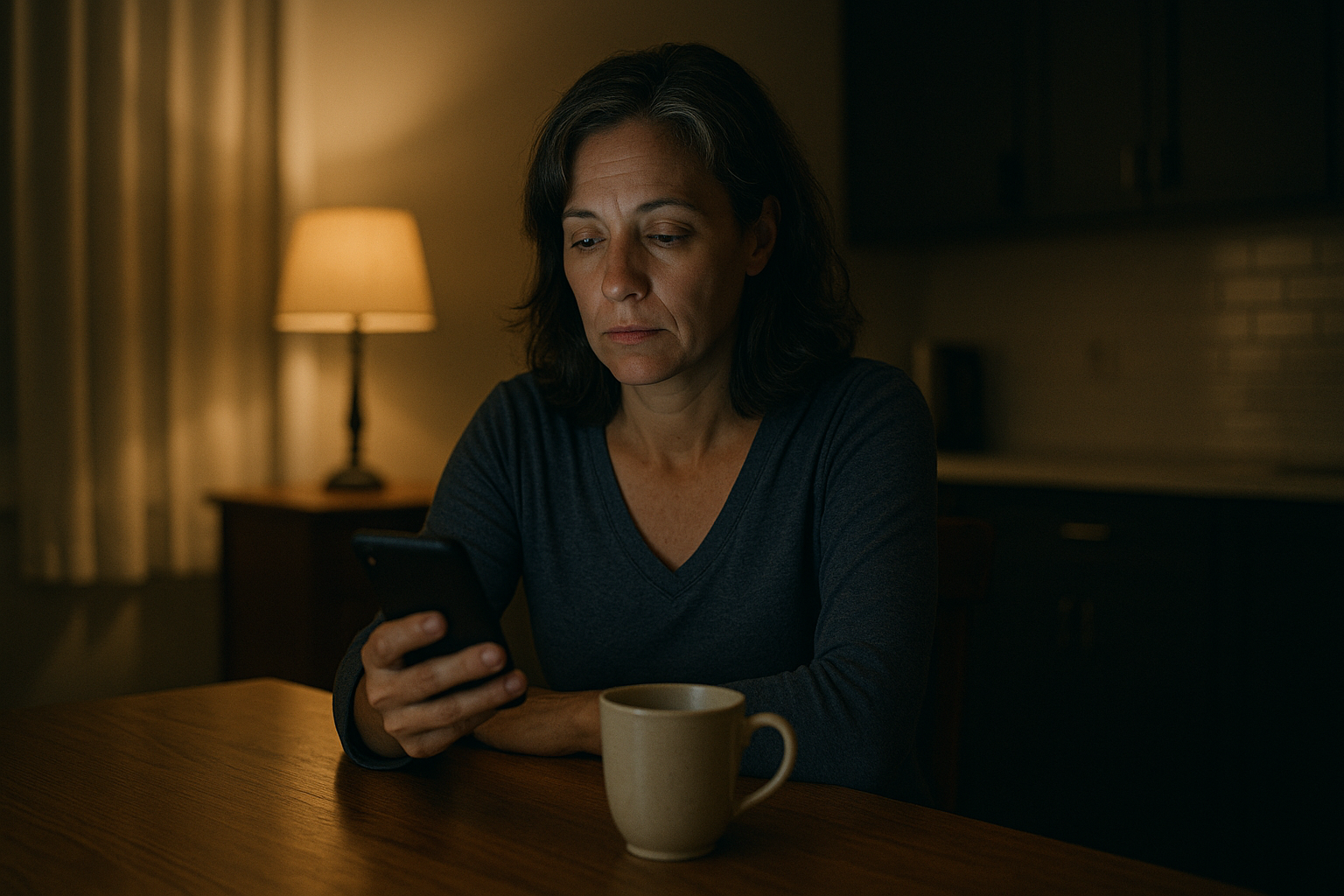Why AI Therapy Might Be the Best Mental Health Option for Caregivers

The Invisible Weight of Caregiving
Maria wakes up every morning at 5am to help her father take his medication. She spends her day juggling work calls, doctor’s appointments, and managing her son’s schoolwork. By the time the house is quiet, it’s nearly midnight and her thoughts finally catch up with her. She feels overwhelmed, anxious, and alone. But booking a therapy appointment? It feels impossible.
She’s not the only one. Over 50 million people in the U.S. provide unpaid care for loved ones with chronic illnesses, disabilities, or age-related conditions. These caregivers are often under immense emotional, physical, and financial strain, yet their own mental health rarely becomes a priority. Why? Because therapy, as we know it, is hard to fit into a life already stretched thin.
Caregivers carry an invisible weight. They show up every day for someone else, often at the expense of their own well-being. And while traditional therapy can help, many caregivers don’t have the time, energy, or resources to make it happen.
That’s where AI therapy enters the picture. In this article, we’ll explore why AI-powered mental health support might not just be a convenient option for caregivers, it might be the best one.

The Mental Health Burden of Caregiving
Caregiving can be deeply meaningful but it’s also one of the most emotionally and physically exhausting roles a person can take on. Whether you're supporting a parent with dementia, a partner with cancer, or a child with special needs, the emotional toll is real and often unacknowledged.
Studies show that over 40% of caregivers report high levels of emotional stress, and nearly 1 in 4 experiences depression or anxiety. Many caregivers feel trapped in a cycle of self-neglect: skipping meals, missing sleep, and putting their own health appointments last. And because their stress builds gradually over time, it often goes unnoticed even by themselves.
What makes it even harder? The emotional complexity. Many caregivers experience:
- Guilt for feeling frustrated or overwhelmed
- Resentment they’re too ashamed to admit
- Anxiety about their loved one’s health, finances, or future
- Burnout that doesn’t have an obvious exit
And yet, despite this mental load, caregivers are among the least likely groups to seek therapy. When survival mode is your default setting, your own healing feels like a luxury.
Why Traditional Therapy Often Doesn’t Work for Caregivers
For many people, therapy is a lifeline. But for caregivers, the traditional model of mental health care, weekly appointments, fixed times, commuting to an office, can feel completely out of reach.
Here’s why:
Time Is a Luxury They Don’t Have
Caregivers often operate on a tightly packed schedule, filled with responsibilities that leave little room for self-care. Even finding 45 minutes for a virtual session can feel impossible when someone else depends on you around the clock.
“By the time I had a moment, the clinic was closed. Again.” a caregiver from Texas
The Cost Barrier
While therapy is more accessible than ever before, many caregivers still face financial hurdles. Insurance might cover some sessions, but high co-pays, deductibles, or a lack of coverage altogether can make ongoing care feel like a financial burden.
According to the National Alliance for Caregiving, caregivers spend an average of $7,000 a year out of pocket on caregiving expenses. That doesn’t leave much room for mental health support.
Emotional Resistance and Guilt
Even when time and money aren’t the issue, emotional resistance often is. Many caregivers feel guilty taking time for themselves, even if they’re burning out. Others worry that seeking help means they’re not “strong enough” to handle things on their own.
And then there’s the vulnerability factor: the idea of opening up to a stranger, especially when you’re exhausted, can feel daunting.
AI Therapy: A Quiet Revolution
In the past few years, something quietly powerful has emerged: AI therapy. Unlike traditional therapy, it doesn’t require an appointment, a commute, or even the courage to speak out loud. It just requires a moment and your phone.
AI therapy tools use natural language processing and clinical frameworks like Cognitive Behavioral Therapy (CBT) to offer mental health support via chat. These tools are not meant to replace human therapists but to offer a new kind of access, especially for people who feel stuck or underserved by the traditional model.
For caregivers, this kind of accessibility isn’t just convenient, it’s transformational.
No Waiting Rooms, No Judgments
AI therapy tools are ready when you are whether that’s at 2pm in between errands or 2am during a panic spiral. There’s no risk of being judged or misunderstood. No need to explain your whole backstory. You can start where you are and say what you feel, even if it’s messy.
Always On, Never Tired
Unlike traditional therapy, there’s no limit to how often you can check in. If you feel triggered five times in a day, you can talk through it each time. You don’t have to wait until next Thursday.
Built on Evidence, Trained for Support
The best AI therapy tools are designed with input from real therapists. They follow evidence-based techniques like:
- CBT (challenging negative thought patterns)
- DBT (regulating overwhelming emotions)
- Journaling prompts for reflection
- Mood tracking and affirmations
This means you’re not just chatting, you’re practicing real skills that can reduce anxiety and prevent burnout over time.
Why AI Therapy Fits the Caregiver Life
When your life revolves around caring for someone else, your own needs can get squeezed out of the picture. But AI therapy is uniquely suited to work with, not against, the reality of caregiving. Here’s how:
24/7 Accessibility
Caregiving doesn’t stick to business hours. Whether it’s late at night or early morning, AI therapy tools are always available. No scheduling, no waiting.
“I started using AI therapy after a hard night with my husband. It was 3am and I just needed to talk without worrying about waking anyone up.”
Total Privacy, No Judgment
AI doesn’t judge. It doesn’t react. It doesn’t flinch when you say something you’ve never admitted out loud. For caregivers who feel ashamed, angry, or lost, AI offers a space to release without fear of being misunderstood or stigmatized.
Works in Micro-Moments
Sometimes you don’t need an hour-long deep dive. You need a five-minute mental reset before giving someone a bath or driving to a doctor’s appointment. AI therapy offers that kind of flexibility. Even a short interaction can reframe your thinking and reduce stress.
Affordable and Sustainable
Let’s be real: caregivers often don’t have extra money to spend on therapy. Many AI therapy tools, like Aitherapy, offer low-cost subscriptions (~$15/month) or even free tiers with daily check-ins. That means support is sustainable, not just a one-time splurge.
It Fits in Your Pocket
No calls. No driving. No explaining. Just open the app and talk. The simplicity and portability of AI therapy makes it accessible in the chaos of real life.
Real Caregivers, Real Results
For many caregivers, AI therapy isn’t just a convenience, it’s a lifeline. While clinical data on AI therapy is still emerging, the stories from real users are already showing just how powerful this kind of support can be.
Here are a few unfiltered words from our Trustpilot reviews that show how Aitherapy is becoming a powerful mental health companion:
“24/7 support when nights are the hardest.”
“I’m still recovering from an accident and can’t always sleep. Aitherapy has been a huge help during those tough nights. It helped me see that I’ve made more progress than I realized.”
— StarSeed, February 2025
“Better than anything else I’ve tried.”
“I tried local therapists, but no one called me back. Aitherapy was affordable and there for me when nothing else was. It’s drastically improved my mental health.”
— Elicia Hasse, December 2024
“A daily habit that actually helps.”
“I trust Aitherapy more than other therapy tools. It doesn’t just validate everything—it encourages mindful engagement. It’s become a great daily practice for me.”
— Kartick Sitaraman, April 2025
These stories show what the research is beginning to confirm: AI therapy can help reduce feelings of isolation, lower anxiety, and increase emotional resilience. For caregivers, who are constantly “on”, that kind of support can make all the difference.
It may not offer hugs or eye contact, but it offers something else: consistency, calm, and an always-open door.
Limitations & When AI Therapy Isn’t Enough
AI therapy can be incredibly helpful but it’s not a silver bullet. Like any tool, it has its boundaries. It’s important to understand where AI support ends and where human intervention becomes necessary.
Not for Crisis Situations
AI therapy tools are not equipped to handle mental health emergencies or crises such as suicidal ideation, psychosis, or abuse. If someone is in danger or experiencing a mental health emergency, they need immediate human support either from a crisis line, emergency room, or licensed mental health professional.
If you or someone you know is in crisis, please reach out to:
- 988 Suicide & Crisis Lifeline (USA): Call or text 988
- Crisis Text Line: Text HOME to 741741
- SAMHSA’s Helpline: 1-800-662-HELP (4357)
No Human Empathy or Nuance
AI can simulate empathy and offer structured reflection, but it doesn’t feel. It can’t read tone of voice and notice body language yet, or provide the warmth of human presence. For some people, especially those working through deep trauma or complex relational dynamics, a trained therapist's intuition and empathy are irreplaceable.
Best Used as Part of a Toolkit
Think of AI therapy as a first step, a supplement, or a companion, not a complete replacement for human care. It can help you:
- Process daily stress
- Identify patterns
- Practice healthy thinking habits
- Stay grounded between sessions
But it works best when paired with other forms of support—whether that's peer groups, in-person therapy, medication, or community care.
Use it Intentionally, Not in Isolation
The goal isn’t to hide from others by relying only on AI, it’s to give yourself a bridge when you feel like you’re walking alone. For caregivers who are often emotionally isolated, AI therapy can be the quiet nudge that leads to something bigger: healing, connection, and sustainable care.
How to Start: A Gentle Invitation
If you’ve made it this far, maybe you’re a caregiver, or maybe you know one. Either way, you know that asking for help is hard. Especially when you’re used to being the strong one.
So think of it as a gentle invitation.
You Don’t Have to “Be Ready”
AI therapy doesn’t ask for your backstory. You don’t need to explain why you feel what you feel. You don’t have to commit to weekly sessions or share your pain out loud. You just need to open a chat box and say hi and tell what you are comfortable with, step by step.
Start Small
- Use it like a journal: dump your thoughts without editing.
- Ask it a question you’re afraid to ask someone else.
- Share something that’s weighing on you even if it feels trivial.
Sometimes, that one step, acknowledging what you’re carrying, is enough to feel a little lighter.
It's Not Selfish to Want Support
So many caregivers put themselves last. But caring for yourself isn’t self-indulgent, it’s necessary. Your mental health affects how you show up for others. You deserve support not because you’re failing, but because you’re human.
Let AI therapy be a small act of self-care. A reminder that your emotions matter. That your needs matter. That you matter.
You Deserve Care Too
Caregivers are the quiet heroes of everyday life. They keep households, families, and communities running often at the expense of their own well-being. And while traditional mental health care has its place, it doesn’t always fit the reality of a caregiver’s life.
That’s where AI therapy shines.
It’s not flashy. It’s not perfect.
But it’s available.
It’s consistent.
And it’s there when no one else is.
If you’ve been waiting for a sign to take care of yourself, this might be it. You don’t need to explain or schedule or justify. You can just start quietly, privately, right from your phone.
Because supporting others shouldn't mean abandoning yourself.
Because you matter too.
And healing, even in small moments, is still healing.
You’ve carried so much for others. Let something carry you for a change.





